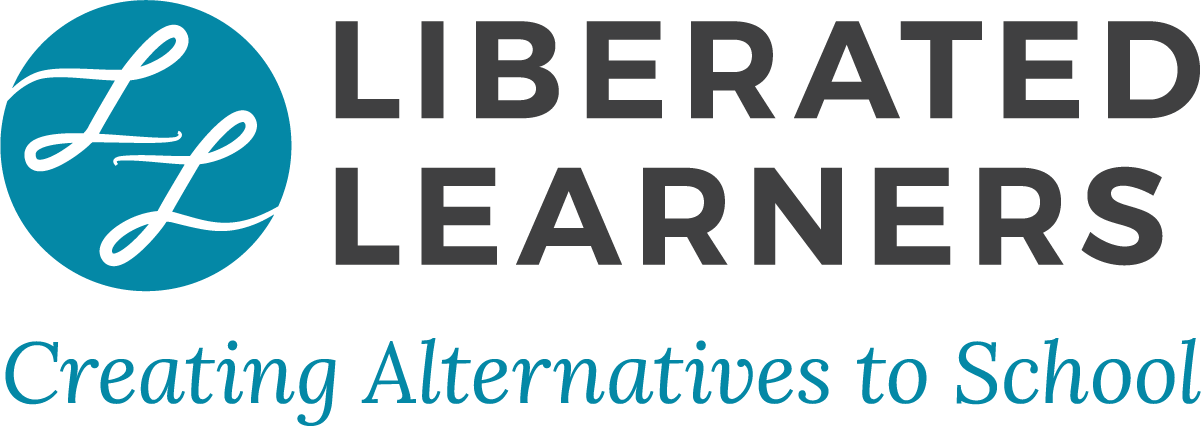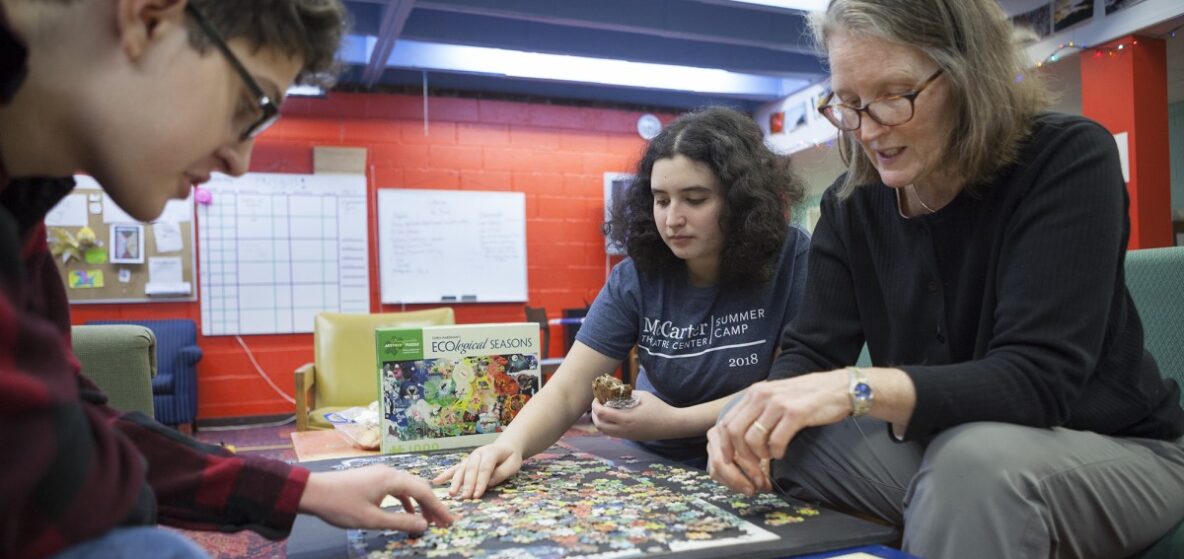By Alison Snieckus
Likely we can all think of adults who we connected with when we were a kid. Whether with a parent or another adult, what was it about the interactions that bolstered the relationship? My guess is that mutually respectful communication was at the core of it.
In their books The Self-Driven Child:The Science and Sense of Giving Your Kids More Control Over Their Lives and What Do You Say: How to Talk with Kids to Build Motivation, Stress Tolerance, and a Happy Home authors Dr. William Stixrud and Ned Johnson (Bill and Ned) offer an approach to effective communication with young people that’s rooted in respect and trust. The intended audience for both books is parents, with the assumption that their children attend conventional school, but the approach they advocate is broadly applicable to adults working with young people in spaces that promote self-directed education (SDE), like the Liberated Learners centers. In an LL network event (recording), Bill and Ned offered snippets of stories and research from their books, giving attendees a taste of what’s possible.
I’ve been recommending The Self-Driven Child to parents and educators exploring options in SDE since it came out in 2018. The main thesis of the book, the importance and power of giving kids a sense of control over their lives, is a fundamental tenet in SDE. Bill and Ned argue that a sense of control inoculates a person from the harmful effects of stress and is key to developing internal motivation. Their second book, What Do You Say, focuses on how parents can engage in respectful and effective dialogue with young people, how to listen without judging, and options for what to say in various scenarios and how a young person might react.
Bill and Ned stress that effective communication is built on top of a mutually respectful relationship with the young person. To be close and connected in this way, they suggest parents spend time one-on-one with their child and actively look for opportunities to communicate empathy and validation, rather than immediately offering advice or, worse, lecturing. When staff at LL centers engage with young people for mentoring (also called advising) they use the same approach. Each young person at a center has a mentor who invites them to one-on-one sessions; good mentoring requires empathizing, validation, and lots of listening. These respectful relationships lay the foundation for a respectful community.
When an adult has a friendly and generous relationship with a young person, they are much more likely to reach out to the adult when troubles arise. Bill and Ned suggest that parents take on a consultant role with their kids. When a kid comes to a parent with a problem, a good consultant listens, reflects back what they heard, and asks open-ended questions, leaving the responsibility for the problem with the young person. This approach conveys that the adult has confidence in the kid to make a decision. We see this again and again at LL centers: kids who take responsibility for something, get through it OK, and then make improvements for the next time. Young people need opportunities to run their own lives during their teen years, to make mistakes and deal with the consequences.
In the session, Bill tells a story exemplifying how conventional school over focuses on achievement and competence and uses fear, guilt, and anger to motivate young people to do their best. It’s no wonder that kids feel stressed at school. Bill notes that internal motivation is built on competence (the will to accomplish a task), but that autonomy (a sense of control) and relatedness (the desire to interact with and be connected to other people) are also central, and of the three autonomy is the most important. A 15-year-old described his lack of autonomy and its effects, and why he wants to make a change, in his application for membership at an LL center:
The normal school setting for me is extremely suffocating, making my normally extremely high love for learning slowly start decreasing. School has become much more of a chore and a repetitive action rather than a place to socialize and learn. School days are around 11 hours with 7 hours in school as well as 4 hours of HW, meaning all my free time is being sucked up. This really makes me miserable as much of my happiness comes with a nice balance between the core academic classes as well as more creative “hobbies.” In the eyes of the school the so called “hobbies” are a waste of time as they are not on the core curriculum. This imbalance, as well as an absurd amount of busywork, is really making my life miserable in school.
This young person spent most of their time in the first few days at the LL center reading The Autobiography of Malcolm X.
But more autonomy doesn’t necessarily help a kid who feels stuck. Often we can see the problem clearly and “know” what the kid needs to do, but we can’t force a young person to change—we can’t force a kid to do anything, really—so how can a parent or a mentor be helpful. Ned gives an example of how a positive offhand comment can be effective, but more often supporting change relies on more nuanced tools such as reflective listening and asking open-ended questions. The idea is to not offer ideas and advice for how to become unstuck, which can feel judgmental and provoke arguing. Rather keeping silent about what to do helps the young person feel safe to try something. We’ve seen kids take action on things that seemed impossible when they first joined the center.
Bill and Ned have much to offer parents who want to improve their communication and interactions with their children, but also teachers and mentors engaged in respectful and supportive learning communities. Check out the video recording of their LL session and if you want to delve deeper read their books.
Our next LL event is hosted by Raritan Learning Cooperative: The Importance of Play, Jan 12 7-8pm EST. Register on Eventbrite. If you’d like to be notified of future LL events, please sign up for our mailing list (see sign up in footer).

